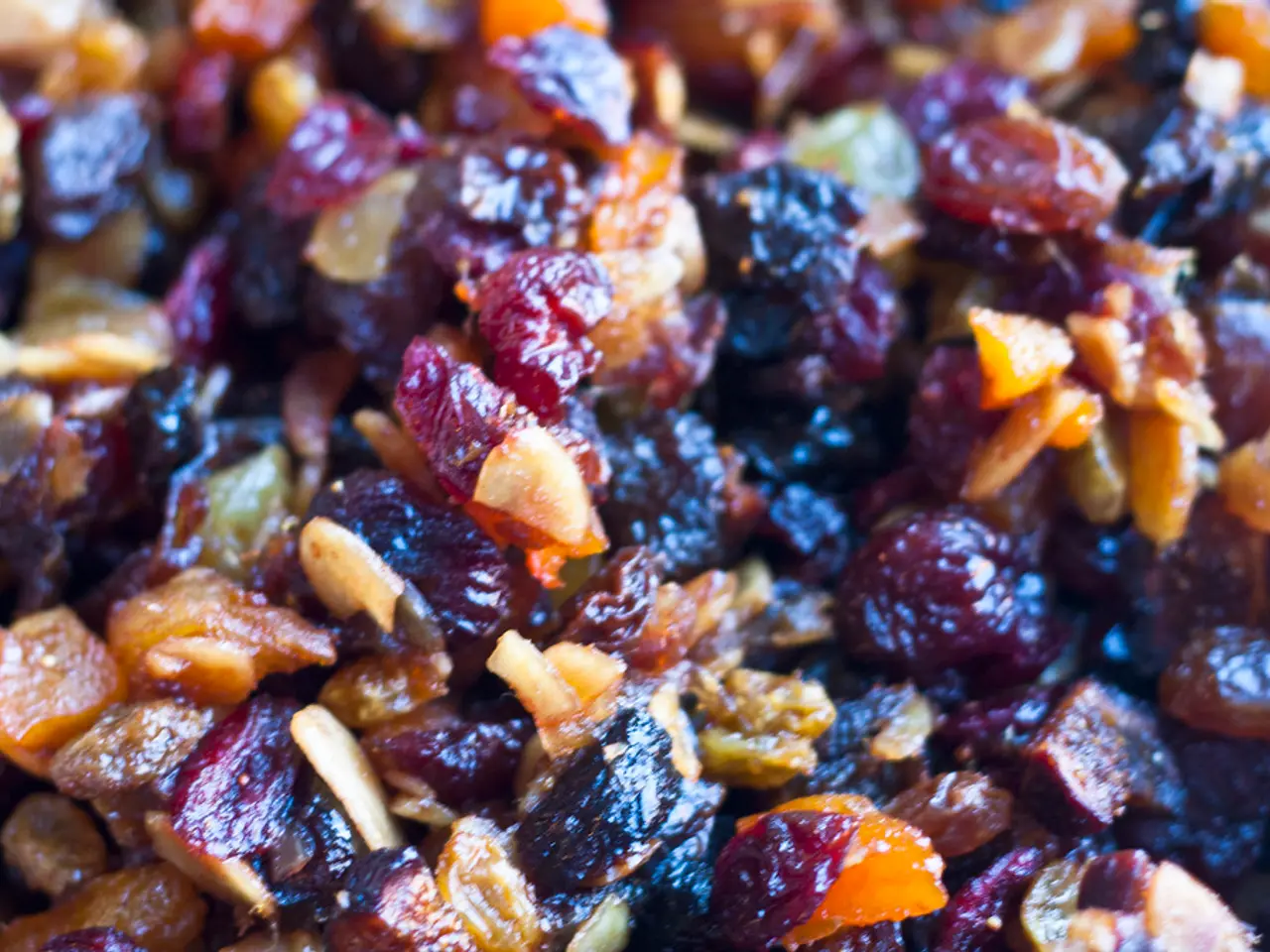Dietary Options for Attention Deficit Hyperactivity Disorder (ADHD): Recommended Foods, Foods to Steer Clear Of, and Sample Plans for Meals
In the realm of Attention Deficit Hyperactivity Disorder (ADHD), nutrition plays a significant role in managing symptoms. A growing body of research suggests that children with ADHD may have lower levels of certain essential nutrients, such as vitamin B12, folate, and vitamin B6, as well as lower levels of monounsaturated fatty acids (MUFA) and higher levels of saturated fatty acids (SFA).
To address these nutrient deficiencies, specialists such as nutritionists, dietitians, and medical doctors specialising in nutritional medicine or pediatric neurology can create individualised nutritional plans. These plans focus on addressing deficiencies in nutrients like magnesium, vitamin B6, zinc, omega-3 fatty acids, iron, and vitamin D, which can influence ADHD symptoms.
It's worth noting that while food dye can have a small behavioural impact in children, this effect applies to all children, not just those with ADHD. The literature on food coloring and ADHD is mixed, with some studies suggesting a link and others finding no significant correlation.
Diets high in refined sugar and fat may potentially increase the risk of ADHD, whereas diets rich in nutrient-dense foods like fruits and vegetables may be protective against ADHD. A study on the nutritional intake of 100 children with ADHD found that these children were more likely to eat ready-made foods and foods higher in simple sugars, while also eating fewer nutrient-dense foods compared to children without ADHD.
One diet that has shown promise in reducing ADHD symptoms is the few-foods diet. This diet, when followed under the supervision of a trained professional, can significantly reduce symptoms of both ADHD and oppositional defiance disorder (ODD). However, it's important to note that outside of following an elimination diet, there are no other diets that are currently shown to be effective for reducing ADHD symptoms.
Eliminating certain food products, such as foods that contain added sugar and artificial food coloring, may help reduce ADHD symptoms in children. Eating foods high in omega-3s, such as mackerel, salmon, sardines, flax seeds, and chia seeds, may help improve serum levels of omega-3s, which are polyunsaturated fatty acids (PUFAs) important for the regulation of serotonin and dopamine, two neurotransmitters that have been shown to play a role in ADHD.
Supplementation of these nutrients may help reduce ADHD symptoms in children with deficiencies. Supplements containing melatonin may help regulate sleep in people with ADHD, which is commonly affected in people with ADHD. Supplementation with iron, zinc, and magnesium may also help reduce ADHD symptoms in individuals with deficiencies.
A combination of a high dose of vitamin D (50,000 IU) and magnesium may help improve the emotional and behavioural symptoms of ADHD. While a 2019 study found no significant relationship between added sugar intake and ADHD symptoms in children, further research is needed to fully understand the role of nutrition in managing ADHD.
Lastly, it's important to remember that while dietary changes can help manage ADHD symptoms, they should be part of a comprehensive treatment plan that may also include medication, therapy, and behavioural interventions. Always consult with a healthcare professional before making any significant changes to your child's diet.
Read also:
- Peptide YY (PYY): Exploring its Role in Appetite Suppression, Intestinal Health, and Cognitive Links
- Toddler Health: Rotavirus Signs, Origins, and Potential Complications
- Digestive issues and heart discomfort: Root causes and associated health conditions
- House Infernos: Deadly Hazards Surpassing the Flames








